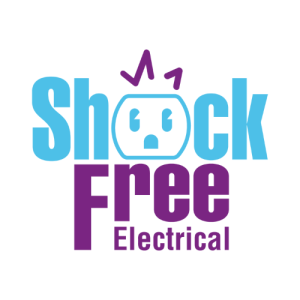Generators are used to provide power when outages occur due to storms and other natural disasters. In this guide, we will cover the types of residential generators available, common installation requirements, generator sizing, and maintenance tips. By understanding these topics, you can ensure you have the right generator for your needs and maintain it properly for long-lasting use. Let’s get started with learning all there is to know about residential generators in St. John’s!
Types of Residential Generators:
When selecting a residential generator for your home in St. John’s, you should consider the type of fuel or power source that best suits your needs. Common fuel sources for residential generators include gasoline, diesel, natural gas, and propane. Each of these power sources has its own advantages and disadvantages, so it’s important to consider the pros and cons before making your purchase.
Gasoline: Gasoline-powered generators are generally more cost-effective than others and can provide enough power for smaller applications such as powering a refrigerator or laptop in an emergency. On the downside, gasoline engines are louder than other types of generators and require regular maintenance such as oil changes and filter replacements.
Diesel: Diesel generators are becoming increasingly popular due to their long run times and high efficiency ratings. They also tend to be quieter than gasoline models, which makes them a good choice for areas with noise restrictions. The downside is that diesel generators can be expensive, and depending on the model, they may require special fuel for operation.
Natural Gas: Natural gas-powered generators are highly efficient and environmentally friendly, as they produce fewer emissions than other types of generators. However, they require a direct connection to an outside natural gas supply line and may not be suitable for homes without access to natural gas.
Propane: Propane-powered generators are economical and can operate in locations with limited or no access to electricity. They also don’t require much maintenance compared to gasoline models and have longer run times than gasoline engines. However, propane-powered generators tend to be more expensive than gasoline models and may need additional fuel tanks to run for extended periods of time.
Common Installation Requirements:
- Understand the local building codes and zoning regulations in your area that may affect the installation of a generator.
- Make sure your generator is installed at least 10 feet away from any combustible materials such as wood or fuel tanks.
- Obtain all necessary permits, inspections, and approvals prior to beginning installation of the generator.
- Hire a licensed electrician to handle the wiring and electrical connections of the generator if you don’t feel comfortable doing it yourself.
- Ensure proper ventilation around the generator by keeping it away from windows and other openings where exhaust fumes could enter a living space.
- Install surge protection devices (SPDs) on incoming lines connected to utility power for added safety.
Generator Sizing:
When selecting a residential generator, you’ll need to consider the size of the unit based on your power needs. Generator sizing involves calculating the total amount of wattage required for all electrical items that may be running at the same time during an outage. Once you know the total wattage needed, you can select a generator with enough power output to handle these loads.
Maintenance Tips:
Regular maintenance is key to keeping your generator in good working condition and extending its life span. Here are some tips for maintaining your generator:
1 . Check oil levels regularly and replace oil as necessary.
2 . Keep air filters clean and change them if they become clogged or dirty.
3 . Perform regular visual inspections to ensure all parts are securely connected and free of corrosion or damage.
4 . Store fuel in a secure location away from the generator and out of reach of children and pets.
5 . Keep your generator clean by wiping it down with a damp cloth on a regular basis.
6 . Schedule professional maintenance at least once per year for optimal performance and safety.
By taking the time to understand the different types, installation requirements, sizing considerations, and maintenance tips for residential generators in St. John’s, you can make an informed decision when selecting one for your home. Taking proper care of your generator will also help ensure that it runs smoothly and efficiently for many years to come.






